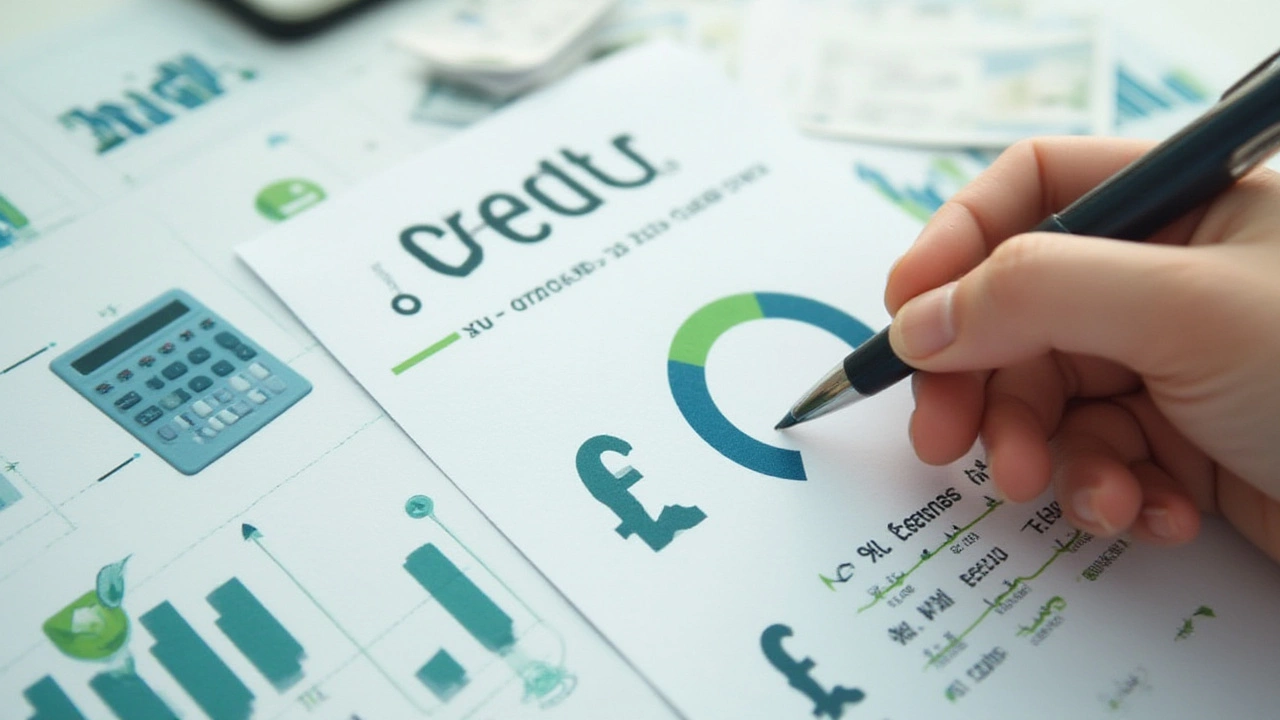Imagine you’re staring at your credit card statements, and you can’t even remember what half the charges are for, but the balances never leave you alone. You’ve seen those catchy ads for debt consolidation promising one easy payment and less stress. Sounds like a dream, right? But a nagging thought hits you: is this going to wreck your credit score and leave you worse off? Truth is, there’s no simple yes or no. There’s a mix of myth, fact, and a few surprises.
How Debt Consolidation Works
First, let’s get what debt consolidation actually means straight. Say you have three credit cards, each from a different bank, and you’re tired of juggling due dates and minimums. Debt consolidation bundles everything into one new loan or credit line. Now, you just have one payment each month. You might do this with a personal loan, a balance transfer card, or even a home equity loan if you’re comfortable using your house as leverage.
Here’s the thing: you don’t magically get rid of debt, but you try to make it easier to manage. Sometimes, you land a lower interest rate, so more of your money hits the principal instead of vanishing into fee-land. Some folks do this to avoid late payments. Others want to break up with credit card companies for good. I’ll be honest—I considered it once, after Samantha sat me down for a serious Sunday morning budget talk. It didn’t erase our debt overnight, but it kept our kitchen table arguments down to a minimum.
Debt consolidation isn’t the same as debt settlement. Settlement means you’re negotiating to pay less than you owe, which usually does a number on your credit. Consolidation just moves the pieces around, hoping to get ahead. Banks and lenders love those balance-transfer offers because they want your long-term business (and interest payments). But do they turn around and ding your credit score for trying to do the responsible thing? Let’s dig in.
What Happens to Your Credit Score After Consolidation?
So, straight up: will your score drop the moment you consolidate? Not necessarily. Consolidation can cause a small, temporary dip because you’re opening a new account, and that triggers a hard inquiry—creditors checking your report. On average, each hard inquiry knocks your score down by about 5-10 points. If you apply for several loans in a short span, that can add up. It’s like your credit report has a little anxiety attack every time someone checks in.
Your new loan also shows up as a fresh account, and the average age of your credit lines factors into your score. Opening new credit can chip away at your credit age, which makes you look riskier to lenders for a while. But as you pay down your debt, something magical happens: your credit usage ratio drops. That’s the percentage of available credit you’re actually using, and it’s a huge deal for your score—nearly 30% of the formula.
Suppose you had $10,000 in total card limits, and you were close to maxed out. After consolidation with an installment loan, you’ve paid off the cards, so—unless you close them—your usage ratio drops like a rock in the right direction. That can actually drive your score up over time.
The real credit danger comes from closing your old cards. It can be tempting, especially if you’ve sworn you’ll never touch them again. But keeping those open (and not using them) keeps your credit utilization lower and your history longer, both of which help your score.
Here’s a quick look at how different aspects of your score may change after consolidation:
| Factor | Immediate Impact | Long-Term Impact |
|---|---|---|
| Hard Inquiry | Small drop (5-10 points) | Disappears after 12 months |
| Credit Utilization | May increase or decrease | Lower usage boosts score |
| Age of Credit | May drop average age | Stabilizes over time |
| Payment History | No effect if you pay on time | Steady payments = big score improvement |
Here’s a tip: set up autopay for your new loan. Even one missed payment tanks your score fast. Payment history counts for 35% of your FICO.

Debt Consolidation Methods and Their Credit Impacts
Not all consolidation is created equal. The way you consolidate affects your credit, sometimes for the better, sometimes not so much. Let’s break down the options:
- Balance Transfer Credit Card: You transfer all your high-interest card debt to one card that offers a 0% intro rate (often for 12-18 months). Opening the new card causes a hard pull, but if you pay it down, your score rebounds. Don’t use the old cards, though—it’s easy to end up deeper in debt.
- Personal Loan: Taking out a fixed-rate loan to cover what you owe makes payments simple. Your score might dip a bit from the inquiry and new account. As you pay off, your utilization goes down. Just don’t add new card spending behind your spouse’s back—I learned that the hard way with Samantha.
- Home Equity Loan/Line: Using your home as collateral can get you lower rates, but you’re risking your house. If you default, it’s not just your credit that suffers. This option often helps scores if you handle it right because it reduces credit usage on your cards.
- Debt Management Plan: You work with a credit counselor who negotiates with lenders for lower rates and simpler payments. The accounts enrolled usually get closed, which can hurt your credit in the short term. But sticking to the plan builds great payment history.
My friend Joey tried the balance transfer route and actually watched his score jump up twenty points after three months—he didn’t close his old cards and cut them up instead, so temptation wasn’t in reach. But my old neighbor lost fifty points after closing all his paid-off cards. The smallest choices can snowball.
Common Debt Consolidation Mistakes That Hurt Credit
You want to play this smart. People often hurt their credit not by consolidating, but by what they do right after. Here’s where folks trip up:
- Closing old credit card accounts—hurts your utilization ratio and shortens your credit history.
- Missing payments on the consolidation loan—just one late payment can hang around for seven years on your report.
- Applying for too many consolidation loans or cards at once—multiple inquiries in a short time send up red flags.
- Not budgeting—some people consolidate, then start charging up their cards again. Double the debt is a quick way to credit disaster.
- Ignoring fees—some consolidation products have balance transfer fees, loan origination fees, or counseling charges. Stack those up, and you’re deeper in the hole.
If you want a tip that’s saved my bacon: leave those old paid-off cards open but hide them somewhere inconvenient. Out of sight means you’re less tempted, but your credit utilization looks great on paper.
You can also check your credit report for errors before applying to see what’s weighing your score down the most. The big three credit bureaus—Experian, Equifax, and TransUnion—let you pull a free report once a year at AnnualCreditReport.com. Catch a bug early, and maybe you won’t even need consolidation.

Building (or Rebuilding) Your Credit After Consolidation
So, is the credit dip from consolidation permanent? Not if you play your cards right. Most people see the worst of it fade away in six to twelve months. By making regular, on-time payments on your new loan and leaving old accounts open, you signal “responsible borrower” in big neon letters. Paying extra on the principal can speed up your recovery—just check if there are any prepayment penalties.
Another trick: set calendar alerts for loan payments and credit card due dates. I use three separate reminders—my phone, Google Calendar, and a plain old sticky note on the fridge. Samantha thinks I’m paranoid, but I haven’t missed a payment in four years.
If you want to go the extra mile, ask your lender if they report payments to all three major bureaus, not just one. That way, every part of your credit profile gets a glow-up.
And don’t fall for those “credit repair” outfits that want to charge an arm and a leg for shortcuts. Healthy credit follows old-fashioned habits: low balances, on-time payments, not biting off more than you can chew. If you stay on top of things, the temporary dip from debt consolidation turns into a long-term win.
Just remember, credit isn’t just a score to brag about. It’s leverage. It’s being able to jump on a home loan, snag a sweet rewards card, or get your kid’s first car financed someday. That’s real freedom.

